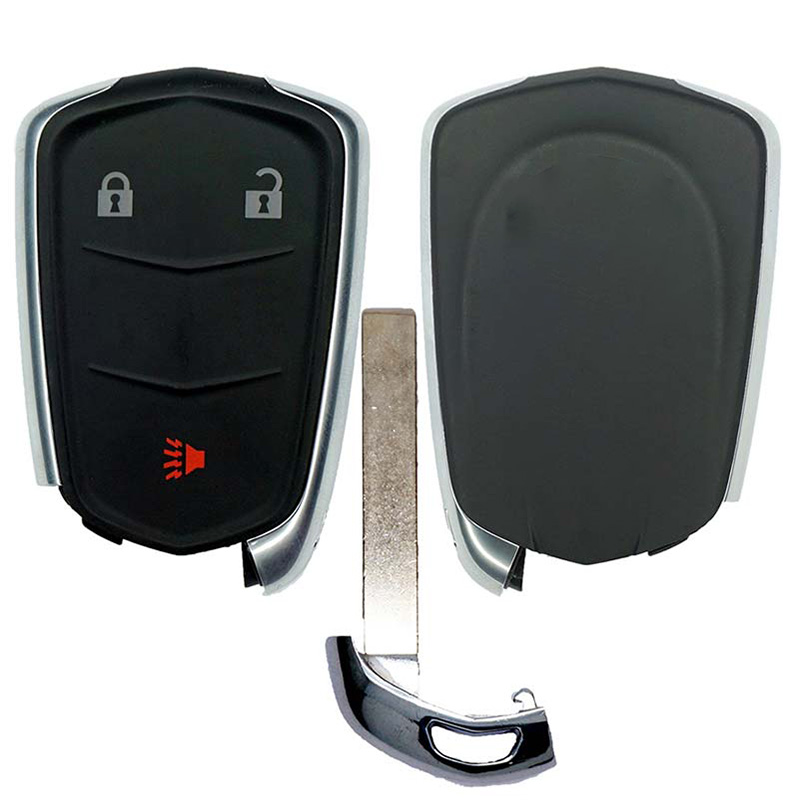Locksmiths play a crucial role in helping car owners who have lost their keys, need a spare, or require a replacement due to wear or damage. Modern car keys vary in complexity, ranging from simple mechanical keys to sophisticated electronic fobs with built-in security features. Understanding how locksmiths make car keys reveals the combination of skill, technology, and expertise involved in the process.

Types of Car Keys Locksmiths Can Make
Traditional Mechanical Keys
These are standard metal keys, typically used in older vehicles. They require no electronic components.
Transponder Keys
Equipped with a small chip that communicates with the car's immobilizer system, these keys provide added security.
Key Fobs
These remote keys often have buttons for locking/unlocking the car and may include push-to-start functionality.
Smart Keys
Advanced keys that use proximity sensors to allow keyless entry and starting.
The Process of Making Car Keys
The method locksmiths use depends on the type of key and the vehicle's make and model. Here’s how they do it:
1. Identifying the Key Type
The locksmith first determines the type of key needed. This involves checking:
The car’s make, model, and year.
Whether the key is mechanical, transponder-based, or electronic.
2. Gathering Key Information
To create a replacement key, locksmiths need specific information about the car’s locking system. This can be obtained through:
3. Cutting the Key
For mechanical keys, locksmiths use a key cutting machine to replicate the key or create one from scratch based on the lock’s code.
Steps for Key Cutting:
Insert a blank key into the machine.
Use the original key or the key code as a template.
The machine carves the blank key to match the required pattern.
4. Programming the Key (For Transponder and Smart Keys)
Modern cars often require electronic keys to be programmed to sync with the car’s immobilizer. Locksmiths use specialized tools and software for this process.
Steps for Programming:
Access the Car’s OBD Port: The onboard diagnostic port allows locksmiths to connect programming tools to the car’s computer.
Program the Transponder or Fob: The locksmith enters the necessary code or sequence to pair the new key with the car.
Test the Key: The locksmith ensures the key starts the car and, if applicable, that the remote functions (e.g., lock/unlock) work correctly.
5. Troubleshooting and Testing
Before handing the key over to the customer, locksmiths test its functionality to ensure compatibility with the car’s systems.
Tools and Equipment Used
Key Cutting Machines: For mechanical key duplication or creation.
Key Decoders: To analyze and determine the code of an existing key or lock.
Programming Devices: Used to sync transponder keys and key fobs with the car.
Blank Keys: Uncut keys compatible with various car models.
Challenges Locksmiths May Face
Proprietary Systems: Some manufacturers use unique locking mechanisms that require specialized tools.
Complex Electronics: Advanced security systems in smart keys can make programming more challenging.
Key Code Accessibility: If key codes are unavailable, locksmiths may need to disassemble the lock to decode it manually.
When Should You Contact a Locksmith?
Advantages of Using a Locksmith
Cost-Effective: Locksmiths are often cheaper than dealerships for key replacement.
Convenience: Mobile locksmiths can come to your location.
Expertise: Locksmiths have specialized tools and experience to handle a wide range of key issues.
Conclusion
Locksmiths make car keys by combining traditional craftsmanship with modern technology. Whether you have a simple mechanical key or a sophisticated smart key, locksmiths use specialized tools and techniques to ensure you’re back on the road quickly. Their services are essential for car owners in need of fast, reliable key replacement or programming.

 Englishen
Englishen











 No.991 Xingxiu Road,Taiwanese Investment Zone, Quanzhou, Fujian Province,P.R.China
No.991 Xingxiu Road,Taiwanese Investment Zone, Quanzhou, Fujian Province,P.R.China +86 13960286508
+86 13960286508
 3D Reality Showroom
3D Reality Showroom
